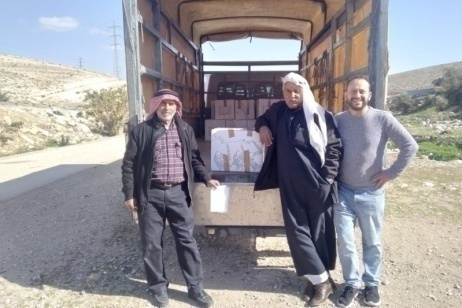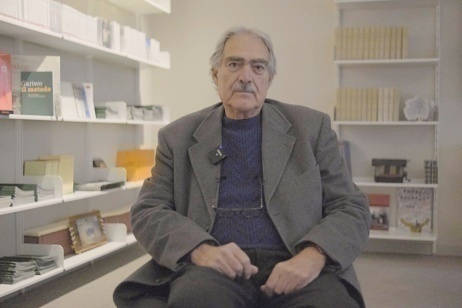Amin Wahidi is a Kabul born film director and journalist, currently based in Milan. While in Afghanistan, Amin Wahidi worked for ATN (Ariana Television Network) producing three weekly television shows. In 2007, while working on his film “The Keys to Paradise”, about a suicide bomber in Afghanistan, he received death threats from fundamentalists and had to leave his country. In Italy he has made short films including The Guest, winner of the Venice City Award in 2014, a feature fiction The Persian Dinner (2015) and a feature documentary Behind Venice Luxury which won another Venice City Award in 2017.
Nowadays, Amin works as media activist to inform the global audience on what is happening in Afghanistan. As Gariwo interviews him, in Kabul the Taliban are announcing the Emirate’s government.
Amin, how could the Taliban take over be avoided?
The international community had left all the power in the hands of few dual-citizenship men. Those people don’t have any popular roots and didn’t provide any proper investment to meet the civil society’s needs. Before the Taliban took power, everything was controlled by three persons: President Ashraf Ghani (a US citizen), the Head of the government staff Fazal Mahmood Fazli (a Swedish citizen) and the National security advisor Hamdallah Moheb (a British citizen). Like them, several other leaders came to Afghanistan without having any direct contact with the local people. For example, Ajmal Ahmady, the previous Governor of the Bank of Afghanistan, is supposed to be a Lebanese citizen passed off as Afghan. He does not speak well neither Dari nor Pashto and obtained that power position because of his personal relationships with Ghani's wife, a Lebanese. These people, among other things, have been accused of having run away with millions of dollars.
What was the role of civil society?
The attitude of the Afghan people was also questionable. If the nowadays protests had been done long ago we would not have to face this terrible situation. People expected someone from outside the Country to do the job for them, and that is wrong. But now they have no choice: if they do not want this religious and ethnic hegemony, they can do nothing but march on the streets and fight for their own destiny.
How did Afghanistan ended to become, once again, an Islamic Emirate?
The fall of the Afghan government was actual prepared in 2014. While the other ethnic leaders (Hazara, Uzbeks, Tajiks) believed that the promises of a national unity was true, president Ghani dismantled the country. He did it though two paths: firstly by disarming the non-Pashtun forces that were fighting against Taliban; secondly by placing himself at the center of every military decision, thus creating immobility. He also headed the committee that 2014 transferred military power from NATO to Afghan forces. There are a lot of rumours about the weakness of the army, but the reality is that Ghani didn’t want that the Taliban were hit. Hitting the Taliban it would have meant shedding Pashtun blood, his ethnicity. Recently, Reuters exclusively published the transcript of a conversation between him and Biden that was held prior to the collapse. The American president was asking for a defensive plan, but Ghani did not deliver it to him. Why? Because he had had an evacuation plan in mind for some time.
What’s the role of Pakistan?
There are two different aspects to analyze. A few days before Ghani's escape, some non-Pashtun Afghan leaders went to Pakistan to explain to the local leadership that Afghan ethnic minorities were not to be treated as enemies of Pakistan. They asked for support for the construction of a new government that would take into account all the ethnic communities present in the territory. What these delegates didn’t know was that Ghani had already met with the command of the Pakistani army three times. He had decided to hand over the power to Pakistan in exchange for the maintenance of the Pashtun leadership. There was a real sell-off of the country. Pakistani Prime Minister Imran Khan, a former cricketer, is also a Pashtun and does not mind that Afghan power remains in the same hands.
Furthermore, if the country is in the hands of the Taliban, all fundamentalist movements that create problems in Waziristan can be sent to Afghanistan. Above all, Pakistan will be able to participate in the management of Afghan resources and obtain part of the aids that will arrive from the West. Basically Pakistan is playing the same role it had during the Cold War. For example, it is helping in the evacuation of foreigners still remaining in Kabul in exchange for substantial financial support. it is cheaper for the United States to finance Pakistanis than to stay in Afghanistan.
Ethnocentrism is one of the key points of the Taliban dominion. So why the Western analysts pay more attention to their religious fundamentalism?
On the one hand, all the media tend to follow major newspapers without going into depth. For instance in the United States most of the people tend to give credit to the opinion of Zalmay Khalilzad, an Afghan-American former ambassador to Afghanistan and Iraq and recently, under Trump and Biden, the US representative for reconciliation with the Taliban. Now, Khalilzad and Ghani have known each other for a lifetime as they studied together in Lebanon and pursue the same strategy. Both of them never talk about Pashtun dominance. They always exploit the word "Afghans", even though we know that for them this word is a synonymous of “Pashtuns”. Let’s say that to explain Afghan politics media rely on lobbies of Pashtun intellectuals to explain Afghan politics. For example, too little has been said about the resistances in Panjshir and Behsud. I got an idea: you can become relevant for the international media only if you have the power to threaten the West or if you have the power to guarantee its interests. Pashtuns have both of these powers.
You mentioned the resistance movement in Behsud. How is the situation?
It is a popular resistance movement, born by chance. Since the time of the historic massacres of Hazara people, the nomadic tribes had been invited to take the lands of the Hazaras. Since then until today the Kochi tribes, who are Pashtuns, have invaded the Hazara villages and killed the locals, without any resistance from the central Government. Thus some young Hazara began to defend their territories. Today this resistance is fighting the Taliban alone, after President Ghani tried to destroy it between January and March of this year. On that occasion, the army killed 11 civilians and burned houses. It must be said that President Ghani also has kochi origins and his brother Hashmat Ghani Ahmadzai is the leader of the Kochi Grand Council who recently sworn allegiance to the Taliban. The Hazara resistance today is made up of partisans who hide and try to attack the terrorists. They are led by Abdul Ghani Alipur.
What is the difference between the Behsud resistance movement and the one in Panjshir?
The Hazara resistance is a poor resistance, made up of peasants with no sources but mutual solidarity. That of Panjshir is supported by Tajikistan, India and perhaps Uzbekistan and France, given the great popularity that the ancient leader Aḥmad Shāh Masood had in France. They also have the weapons of the old Afghan army. The Hazaras, having no support, go forward only with courage, determination and the knowledge of their territories. But they have no weapons.
What is your view on Biden's handling of the evacuation of the Country?
This retreat should have happened, sooner or later. Ghani played cunning, pretending that the army could last another six months. However, looking at this new resistance, I think Biden made the right choice. In Afghanistan, thanks to 20 years of international aid, many people had settled into a life of external support, an eternal wait for some foreigner that do something. On the contrary, I believe that if you want to save the country you have to take responsibility, make sacrifices, risk your life to obtain freedom. There are no angels who save us: either we change the situation or nobody does it. All revolutions were born in this way. Nowadays, when I see videos on social media that tell the courage of the women of Kabul, I become optimistic. I didn't expect it, I'm honest.
Could this protests be the answer to the repression?
I am really optimistic. These women are educated, open, they live in the cities. Ghani escaped and sold the country, but things can change. I foresee that in the long term there may be a split between the north and the south of the Country or at least the institution of a federalist state. It is not unlikely. Biden said that the United States did not go to Afghanistan to build a nation, this choice is up to the Afghans, who have been divided and at war for centuries. And in my opinion he is right, it depends on what the ethnic groups want to do: either they want to live civilly, with a democracy and relative freedom; either they want to be under the yoke of terrorists. What I see with the women and with courageous journalists makes me think that the resistance can continue.
In this regard, which figures are emerging today in Afghanistan for courage and dissent?
One name among the women is certainly the one of Leila Haidari, who has remained in Afghanistan and is doing incredible things, although "underground". Leaders Masood and Alipur can also inspire courage and hope to others. On the contrary, the old resistance leaders fled abroad. And then there are journalists like Fahim Dashti, who was killed, and Zaki Daryabi, the editor of the investigative newspaper Etilaatroz, who bravely stays in Afghanistan to informs us about the atrocities of the Taliban.






